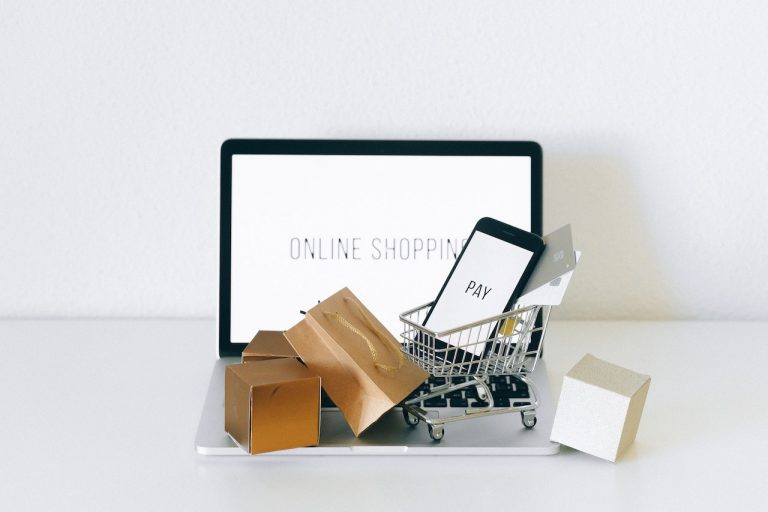Can You Use Klarna to Pay Bills? A Comprehensive Guide
In today’s fast-paced world, managing bills and expenses can feel like a constant juggling act. Buy now, pay later (BNPL) solutions like Klarna have emerged as popular options for spreading out payments on purchases.
But can you use Klarna to pay bills and simplify your financial landscape further?
If you’re short on time, here’s the key takeaway: While Klarna isn’t directly designed for bill payments, there are workarounds and alternative options to consider. This comprehensive guide will delve into the world of Klarna and its applications for bill payments.
We’ll explore the pros and cons, analyze alternative solutions, and answer all your burning questions about using Klarna for managing your bills.
Whether you’re looking for a temporary solution or a long-term strategy, this guide will equip you with the knowledge and information you need to make informed decisions about using Klarna and other BNPL services for your financial well-being.
Understanding Klarna: Features and Limitations
Klarna’s Core Functionality: Buy Now, Pay Later Explained
Klarna’s flagship buy now, pay later service allows shoppers to purchase goods immediately and spread payments over time with no interest.
Unlike layaway plans, users get the product upfront while paying in installments over 6-8 weeks typically. This gives flexibility and convenience.
Klarna Payment Options: Flexibility and Choice for Users
In addition to standard card payments, Klarna provides alternative online payment options through their app including:
- Pay in 4: Pay for purchases in 4 equal, interest-free installments automatically every 2 weeks
- Pay in 30 days: Enjoy 30 days to complete the purchase for flexibility
- Financing: For larger purchases, get monthly financing for 6 to 36 months
This range caters to different buyer budgets and needs.
Klarna’s Credit Requirements: Eligibility and Potential Impact
While Klarna doesn’t require a hard credit check, users must meet basic eligibility criteria regarding:
- Minimum income level
- Fair credit history
- Limited delinquencies
If buyers miss payments, it can impact access to future Klarna purchases and potentially hurt credit scores. Responsible use is essential.
Limitations of Klarna: Exclusions and Restrictions to Consider
Users cannot pay bills directly with Klarna since it focuses strictly on online retail purchases. Additionally, Klarna is not universally accepted, with restrictions around:
- Merchant exclusions: Klarna is not available on platforms like Amazon or eBay
- Product exclusions: Certain goods like alcohol, lottery tickets, gift cards, and more may be restricted
- Location restrictions: Klarna’s services can vary by country and region
Check Klarna’s website to see full details on where it can be used before assuming it is available.
Using Klarna for Bill Payments: Workarounds and Alternatives
The ‘Ghost Card’ Approach: Leveraging Klarna for Indirect Payment
One creative way to use Klarna for paying bills is by generating a virtual or “ghost” card linked to your Klarna account, and then using that card to pay bills online or over the phone.
Services like Privacy.com and Divvy let you create temporary or single-use card numbers that charge your Klarna balance. This gives you an extra step, but enables Klarna as an indirect bill payment option.
Third-Party Services: Exploring Platforms Integrating Klarna
Some financial management apps and services like Vimvest are starting to incorporate Klarna support, allowing users to view balances, make payments toward bills or other expenses, and track spending habits all in one place.
As more platforms add Klarna integration, consumers may find convenient bill management solutions that leverage Klarna’s pay-later model.
Gift Card Strategies: Utilizing Gift Cards for Bill Payment
Since Klarna allows users to purchase goods and services, some retailers offer gift cards that could provide a roundabout way to cover recurring bills.
For example, getting grocery or gas station gift cards with Klarna could help offset living expenses. However, this approach involves additional planning and may not work for bills that require direct bank account withdrawals.
Direct Bill Payment Options: Exploring Klarna’s Future Expansion
| Klarna Executives Hint at Expansion | In recent statements, Klarna CEO Sebastian Siemiatkowski acknowledged interest in supporting direct bill pay in the future to enhance the platform’s capabilities. |
| Potential Impact | Direct integration with utility, mortgage, or other billers would make Klarna more competitive with comprehensive financial tools. |
While Klarna currently lacks built-in features for paying bills outright, comments from company leadership suggest it may expand over time. Landing key biller partnerships could strengthen Klarna’s positioning as a centralized finance app.
Alternative BNPL Services: Comparing Features and Suitability
Users keen on using BNPL services for bills may also look into Klarna’s main competitors like Afterpay, Affirm, Sezzle, and Quadpay.
These rivals provide their own unique advantages – For example, Quadpay has bill pay functionality through MoneyLion. Comparing attributes like APRs, fee structures, purchase limits, and bill payment tools can help consumers select the optimal platform.
Pros and Cons: Weighing the Benefits and Risks
Advantages of Using Klarna: Convenience, Flexibility, and Potential Savings
Using Klarna for paying bills offers several potential benefits. The service provides convenience through its user-friendly app and website, allowing customers to easily view balances, make payments, and manage accounts.
There’s also flexibility in being able to pay bills in installments over time rather than all at once. This can help consumers avoid late fees and free up cash flow for other expenses.
In a 2021 survey, 78% of Klarna US customers said the service helps them avoid overdraft fees from their bank.
And by paying with Klarna in some retail situations, customers may access discounts or deals, potentially saving money.
Disadvantages of Klarna: Late Fees, Potential Credit Score Impact, and Debt Accumulation
However, there are also risks to weigh when using Klarna for bills. If installment payments are not made on time, Klarna charges late fees similar to credit cards. Frequent late payments or carrying long-term unpaid balances could also negatively impact credit scores.
According to TransUnion, buy now, pay later services can lower credit scores by up to 100 points if used irresponsibly over time.
Additionally, the convenience of buy now, pay later makes it easy to get trapped in debt accumulation across multiple services and bills.This could become difficult to manage financially.
Responsible Use of Klarna: Strategies for Avoiding Financial Pitfalls
To leverage the advantages of Klarna while avoiding the pitfalls, customers should use the service responsibly.
- Set up autopay through Klarna to avoid late fees.
- Stick to only a few open BNPL accounts at once to limit credit score impact.
- Manage balances proactively via the Klarna app and maintain on-time payments.
Following guidelines like these will lead to a better experience. Customers with average credit can likely use Klarna responsibly for paying some bills without issue. But those with poor credit or existing debt may want to proceed more cautiously or avoid BNPL entirely.
Comparison with Traditional Bill Payment Methods
Credit Cards: High Interest Rates vs. BNPL Flexibility
Credit cards have traditionally been a popular bill payment method, but they often carry high interest rates.
For example, the average credit card interest rate is currently around 16% according to the Federal Reserve. With BNPL services like Klarna, you can pay over time with 0% interest. This flexibility is appealing to many customers.
Debit Cards: Convenience vs. Rewards and Benefits
Paying bills with a debit card offers simplicity and convenience compared to other options. However, debit cards lack the robust rewards programs and purchase protection benefits you’ll often find with credit cards.
Meanwhile, some BNPL platforms like Klarna offer exclusive discounts, promotions, and cashback opportunities that make them competitive with rewards cards.
Online Banking: Direct Payments vs. Third-Party Integration
Paying bills through your bank with direct payments is reliable, but the process can feel outdated. In contrast, Klarna integrates directly with merchants to offer a seamless experience at checkout.
However, some people may prefer keeping payments within their existing banking apps.
Choosing the Right Method: Tailoring Your Approach to Individual Needs
| Payment Method | Interest Rates | Rewards | Ease of Use |
| Credit Cards | High | Robust | Moderate |
| Debit Cards | None | Minimal | Very High |
| Online Banking | None | None | Moderate |
| BNPL (Klarna) | 0% | Special Offers | High |
With various options available, consumers can choose the payment method that best suits their spending habits and financial priorities. Evaluating interest rates, rewards potential, and ease of use for each method helps match individual payment preferences.
Conclusion
While Klarna isn’t a direct solution for bill payments, its versatility and innovative features offer potential workarounds and alternative strategies.
Understanding the limitations, weighing the pros and cons, and exploring alternative BNPL services empowers you to make informed decisions about managing your bills effectively.
Remember, responsible financial management should always be a top priority. Use Klarna strategically and responsibly to avoid potential pitfalls and maintain your financial well-being.
By combining Klarna with other bill payment methods and adopting a mindful approach to spending, you can leverage the benefits of BNPL platforms while ensuring your financial stability and security.










